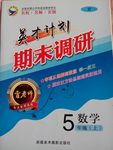题目内容
Under new rules posted by the Civil Aviation (航空) administration of China on Friday, pilots will have to pass a “level four” test of Mandarin Chinese, China’s official language. Those who speak with an accent that “often impedes” comprehension will not pass. These rules take effect in January 2016.
China’s 56 ethnic groups speak more than 80 languages and dialects. Even native Mandarin speakers can have trouble communicating with each other depending on the strength of their accents, which can be mutually unintelligible (难理解的).
One flight trainer illustrated the scope for linguistic confusion, especially when common English aviation terms are used. Asked if there is a problem on board, a Chinese pilot might answer in the negative with the words mei you, or “there isn’t.” But someone speaking with a heavy Sichuan accent would pronounce mei you as “May day” — unconsciously parroting the universally recognized distress call (遇难信号).
Like their international counterparts (对应物), Chinese aviators have developed codes to avoid confusion resulting from homonyms (同音异义字) or near-homonyms. They use the terms yao for one and guai for seven, which are otherwise pronounced yi and qi respectively and easily confused.
The new rule could affect all pilots, who must renew their license every six years, and adds to a growing list of burdens for the profession.
1.What does the underlined word “impedes” in Para 1 mean?
A. improves B. helps
C. misleads D. limits
2.Which of the following is true according to the passage?
A. Sichuan dialect has the contrary meaning to Mandarin.
B. Native Mandarin speakers can understand each other well.
C. It isn’t necessary for a pilot to pass the test before January 2016.
D. “May day” is a distress call in our everyday life.
3.What is the purpose of the Chinese aviators using the terms yao for one and guai for seven?
A. To avoid misunderstanding.
B. To communicate with their international counterparts.
C. To pass the test.
D. To avoid their accents.
4.What is the best title for the passage?
A. Chinese Pilots Told to Get Rid of Regional Accents
B. Chinese Pilots
C. Rich Chinese Languages
D. Hard to Be a Chinese Pilot
 名师点拨卷系列答案
名师点拨卷系列答案 英才计划期末调研系列答案
英才计划期末调研系列答案
